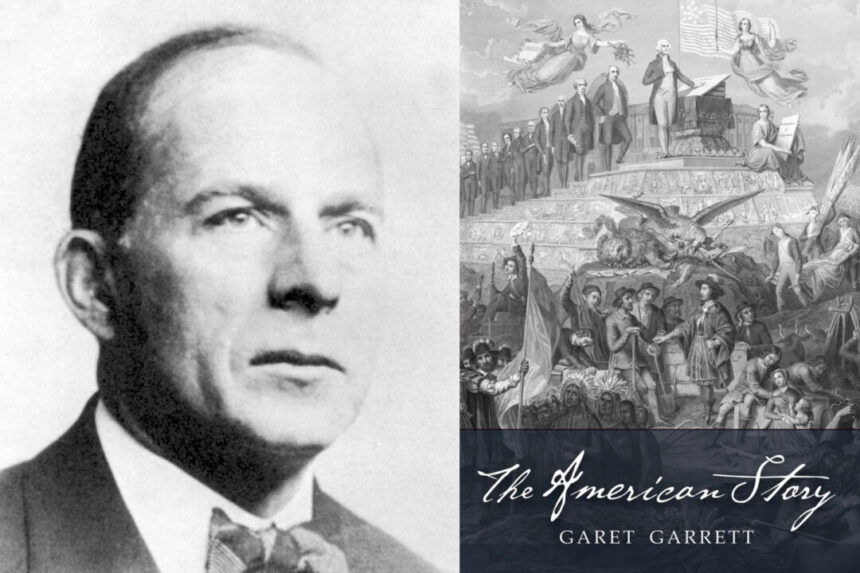Commentary
If Garrett is known at all today, it is by those who are captivated by the handful of intellectuals who wrote in opposition to the New Deal planning state and the regimentation of national life that it brought about. They were a rare breed, and largely forgotten. Aside from that, there is much more to Garrett than people know.
Years ago, I read everything by him I could find, found myself amazed he is not better known, and so brought it all back into print. Garrett is a case study of a forgotten genius, which often happens in times of depression and war when even the most popular writers are forgotten by history. He began to write fiction after Warren G. Harding had called for a “return to normalcy” after World War I. But for Garrett, “normalcy” was civilization itself.
As a financial journalist, Garrett began as a featured contributor to America’s most successful periodical, The Saturday Evening Post, but his contributions were not limited to this publication. He also wrote for Collier’s, Everybody’s Magazine, and The New Republic. His topics usually centered on financial matters. Garrett was at the top of his game and became one of the most widely read writers on economics in the country.
He embarked on a new venture of novel writing, writing his three best one year after another.
The reader is introduced to economics in a unique and captivating way, sparking a newfound appreciation for the subject of enterprise. Garrett’s portrayal of the market is realistic, showcasing a range of human emotions and motivations at play. Despite the competitive nature often associated with economics, the marketplace is ultimately a peaceful setting where price movements determine success and failure.
In “The Cinder Buggy,” Garrett expertly weaves together American history, economic theory, and the impact of technology on society. Similarly, “Satan’s Bushel” delves into the complexities of wheat speculation, highlighting the struggle farmers face in a changing economic landscape. Through intricate plotlines and engaging characters, Garrett explores the morality and utility of speculation while shedding light on the challenges of stabilizing the market.
The novels also offer a glimpse into the early years of the Chicago commodities market, providing a dramatic backdrop to the core principles of economics. Through captivating storytelling, Garrett connects economic activities to human emotions and experiences, fostering a deeper understanding and admiration for the world of enterprise. The speculator’s mindset, actions, and impact on price fluctuations are intricately explored, showcasing the delicate balance between stability and unpredictability in the market. The government’s actions are seen as extremely harmful and ruinous.
His final novel, “Harangue (The Trees Said to the Bramble Come Reign Over Us)” (1927), depicts the true story of a fanatical and despotic socialist takeover of a town, leading to loss of freedom and economic collapse. The New York Times praised it as “an analysis of the workings of the self-consciously radical mind and the play of direct action demagogy on the masses … a first-class study in sociology.” The wealthy heir behind the socialist takeover sheds light on why the rich are drawn to destructive ideologies.
The novel delves into the motivations of socialist activists and explores the failure of the experiment on both economic and political fronts. Through “Harangue,” Garrett shifts his focus to the dangers of the intellectual and political realm as opposed to the world of commerce.
In 1930, Garrett survived being shot during a robbery in a New York City speakeasy, but suffered health issues and a raspy voice. His association with the Post lasted through the Great Depression until opposition to U.S. entry into World War II made it impossible for dissenting voices in the media.
Garrett believed heroism lay in creativity and production, not in war or statism. He warned against dismantling the institutions that foster creativity and economic progress. His legacy as a writer, opponent of government control, and advocate for freedom endures.
Garrett passed away on his apple farm in 1954, somewhat forgotten despite his literary prominence. His final work, “The American Story,” was published posthumously, offering a profound lesson in American history.
I am honored to have played a significant role in bringing Garrett’s works back into circulation. His concise and evocative writing style remains engaging even decades later.
The opinions expressed in this article are solely those of the author and may not align with The Epoch Times’ views.
Source link






